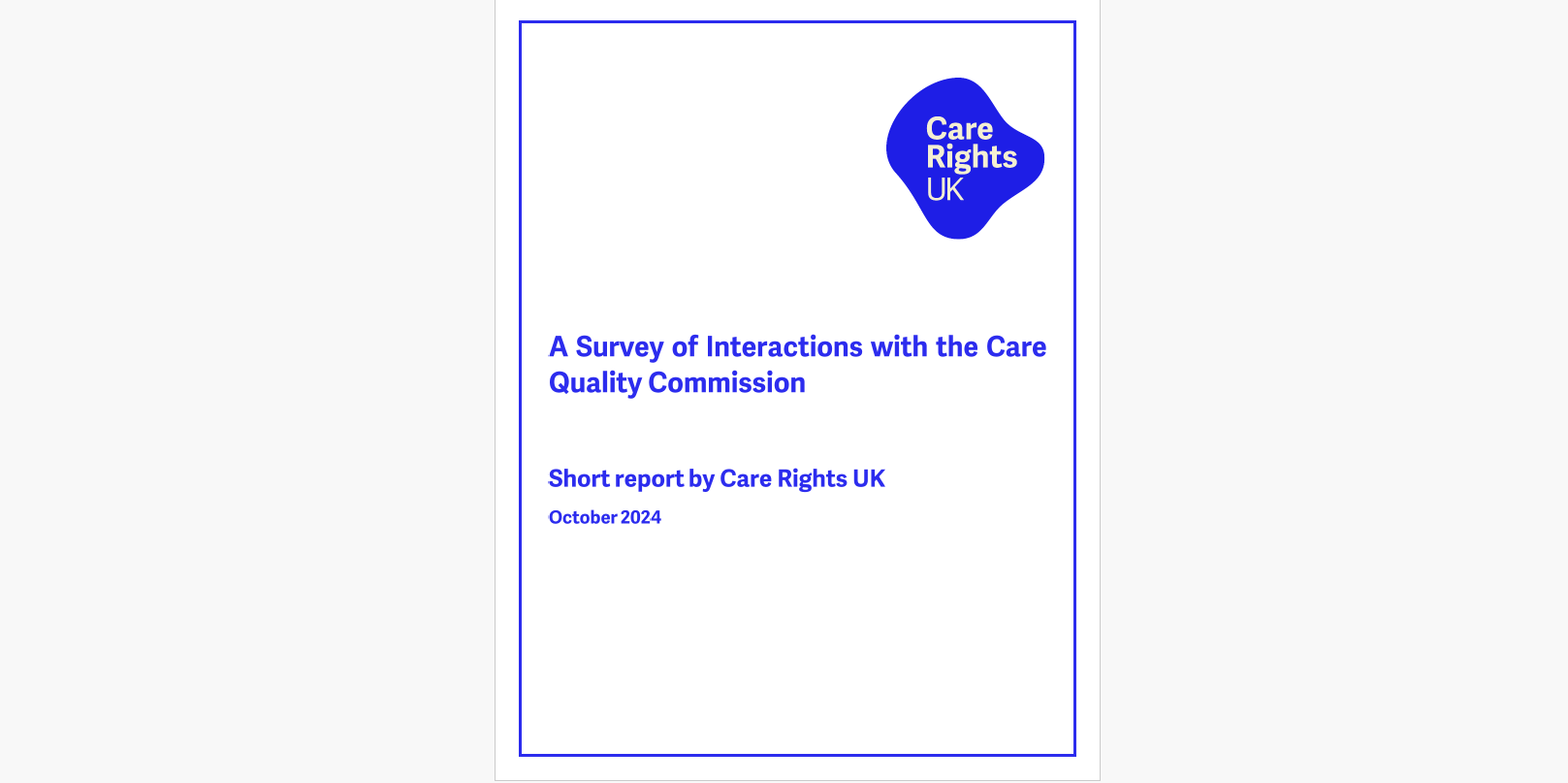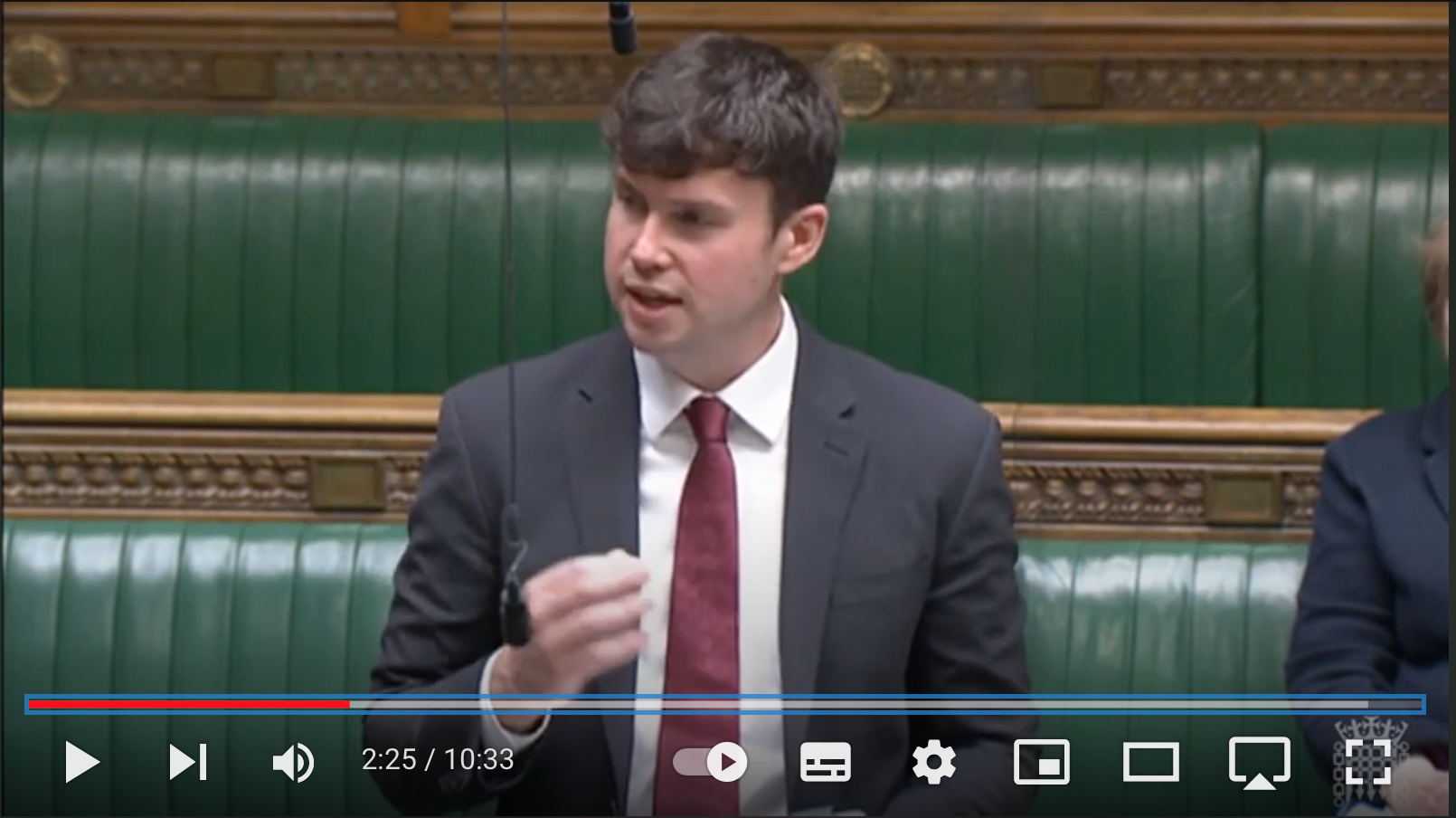Gloria’s Law
Our fight for a new legal right to a Care Supporter
We are campaigning for everyone to have the right to a Care Supporter when using health or care services
Our joint campaign, with Rights For Residents and John’s Campaign, has a groundswell of support across the country. Called ‘Gloria’s Law’ after the mother of actor Ruthie Henshall, Rights For Residents Ambassador. Tragically Ruthie lost her mum after witnessing Gloria’s decline from the other side of a window, over many torturous months during the pandemic. Like thousands of others who were locked away, Gloria deserved a better quality of life and death.
Gloria’s Law would give all of us a legal right to a Care Supporter, that could be with us in all health and care settings.
It would ensure we always have access to a close friend or relative, who can provide emotional support, advocacy, and essential human contact when we need it.
Ruthie Henshall with her mum Gloria
Support the campaign
We need your help to get Gloria’s Law over the line. Whether you are an individual or an organisation, get involved and add your voice!
Organisation support:
If your organisation wants to join the coalition of 100+ charities and providers supporting our call, please get in touch.
Individual support:
Help us demonstrate support for this campaign by signing our pledge!
Our call for a right to a Care Supporter
Care Rights UK, the Rights for Residents campaign and John’s Campaign are leading the call for a right to a Care Supporter. This right would ensure people could have the support of their family or friends across all health and care settings.
What we want to see:
-
A legal right for a person who needs care and support to unrestricted in-person support from at least one essential Care Supporter (a person important to them such as a relative or friend), in private if the person chooses
-
A duty on the health and care system, including providers, to facilitate this contact wherever the person is receiving care and support, and regardless of how it is funded (such as hospitals, mental health facilities, care settings, when receiving care in their own home)
-
The exercise of the duty on health and care providers to be monitored and enforced by the regulator
-
Restrictions on this right to only be permitted where it is necessary to protect from a known and immediate risk of harm from the care supporter (they are infectious or for safeguarding) and must be proportionate to that risk
-
An individual assessment must be carried out when considering a restriction on this right, involving the person and those important to them
-
Where a restriction on this right is necessary and proportionate, an individual assessment must take place to agree alternative means of contact with that person and an alternative care supporter for private in-person contact.
Joining our call
A coalition of 104 organisations
These charities and providers represent millions of people who use health and care services across the country. Read the full list.
Cross-party MP support
The call for a Care Supporter has attracted cross party political support. The Care Supporters Bill passed its first reading in Westminster Parliament with unanimous support, but failed to progress any further.
A cross-party coalition of MPs have been working with us to call for this new law: Dan Carden (Lab), Daisy Cooper (Lib Dem Deputy Leader), Liz Saville Roberts (Plaid Cymru Westminster Leader) and Tracey Crouch (former Con MP).
What’s been achieved so far
We’ve achieved a huge amount so that people in care can have contact with their loved ones.
Thanks to our amazing supporters, members and followers, and their tireless lobbying of Ministers, MPs, care home bosses, government officials, and the media, we’ve already secured major change. The government was forced to remove visiting restrictions on care homes and thousands of families were reunited. Visiting is now recognised as a Fundamental Standard in the health and social care regulations for England - a major step forward, but the right to a Care Supporter is about much more than visiting.
As Care Rights UK we continue to campaign for Gloria’s Law, a new legal right to a Care Supporter, which would guarantee that people will never again be completely cut off from their families when they need them most.
Our successes
March 2021
The Government accepted our demand that all residents should have an essential care giver that could visit during outbreaks and periods of lockdown.
November 2021
The chair of the Joint Committee on Human Rights called on the Government to ‘put into law protections for care home residents deprived of family visits.’ In response to evidence from campaigners, the committee called for immediate action to reconnect care home residents with family and friends.
March 2022
The Joint Committee on Human Rights wrote to the Prime Minister, urging him to place care home visiting guidance on a statutory footing. The committee wrote to Boris Johnson quoting evidence given by the Rights for Residents campaign ambassador Ruthie Henshall.
April 2022
The Government finally removed all visiting restrictions to care homes. Responding to the demands of campaigners, the Government limited restrictions to outbreak management only.
July 2022
The Joint Committee on Human Rights called on the Government to introduce legislation. Following evidence given to the committee by campaigners, in their report, the committee urged the Government to introduce legislation that would give those in care a legal right to maintain contact with a loved one “in all circumstances”.
December 2022
The Government confirmed universal mask wearing in care homes was to end. This significant concession was widely welcomed by residents, their families and many of those working in care homes.
June 2023
The Care Supporters Bill was introduced to the Westminster Parliament and passed its first reading with unanimous support. Second reading was scheduled for 24 November but this was cancelled following the King’s Speech.
March 2024
Labour leader Keir Starmer backs Gloria’s Law. In a media interview he committed to working closely with campaigners to change any legislation. He thanked “the tireless campaigners who have continued to fight on this issue week-in week-out”.
Show your support for Gloria’s Law - sign our pledge
It takes less than a minute.






